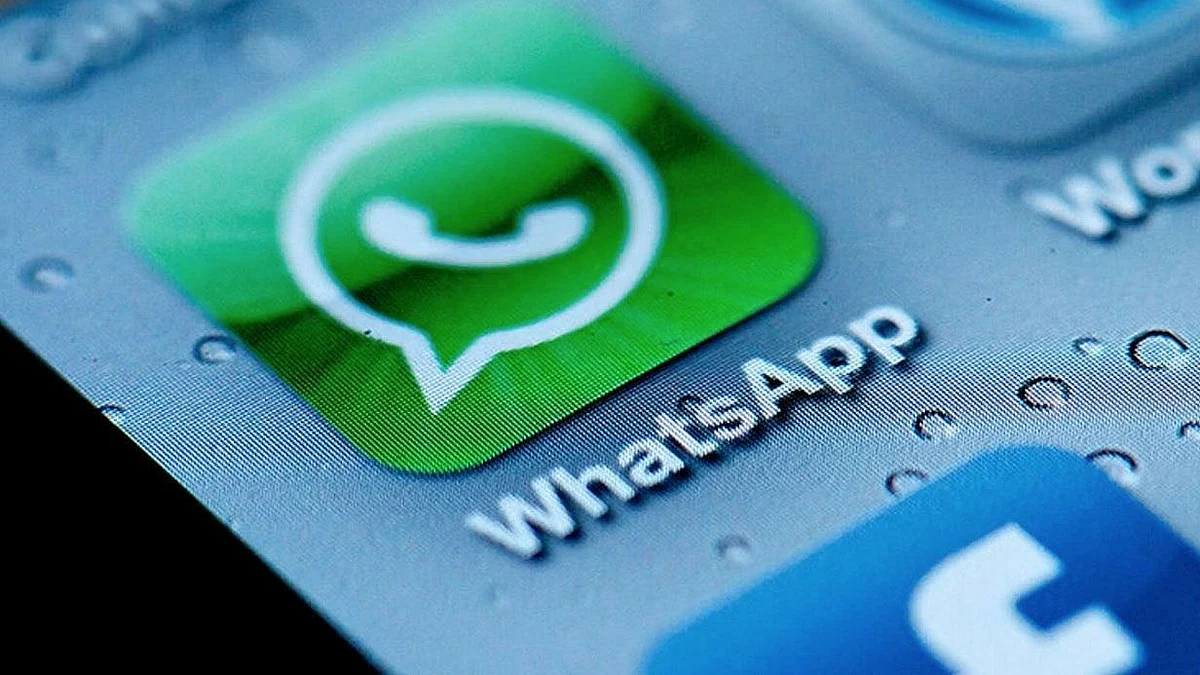WhatsApp, Facebook & Instagram Back Online After Six Hours of Global Outage
The apps had crashed for users worldwide on Monday, 4 October, evening.

advertisement
Messaging app WhatsApp, as well as Instagram and Facebook, reconnected to the global internet early on Tuesday, 5 October, morning after being down for nearly six hours.
The three social media platforms had crashed for users worldwide on Monday, 4 October, evening, and users were unable to send or receive new messages, or refresh their feeds.
Mark Zuckerberg, the chief executive officer of Facebook, later apologised to users worldwide for the disruption.
Facebook Chief Technology Officer Mike Schroepfer also apologised for the outage and said, "To every small and large business, family, and the individual who depends on us, I'm sorry. It may take some time to get to 100%."
Whatsapp CEO Will Cathcart took to social media and said the app was back up and running.
"We know that people were unable to use WhatsApp to connect with their friends, family, businesses, community groups, and more today — a humbling reminder of how much people and organisations rely on our app every day," he tweeted.
According to website monitoring group Downdetector, this was the largest such failure the company had ever seen, reported Reuters.
Zuckerberg Loses More Than $6 billion in Personal Wealth
According to Bloomberg, Zuckerberg's personal wealth fell by more than $6 billion in the hours the three social media platforms were down. It also saw him moving down in the list of the world's richest people.
The social media giant's stock, too, plummeted by 4.9% on Monday, which took Zuckerberg's worth down to $121.6 billion. It also put him below Bill Gates to No. 5 on the Bloomberg Billionaires Index.
Why It Happened
Facebook blamed the major outage on router work, AFP reported.
Earlier, The Wired suggested that the outage could have been due to its Domain Name System (DNS) becoming unreachable.
DNS can be seen as the phone book of the internet. DNS mishaps are quite common and most likely the reason behind the outage of any website. They can happen for a number of technical reasons and are relatively easy to resolve.
However, in this case, something more serious could have caused the issue.
Troy Mursch, the chief research officer of cyberthreat intelligence company Bad Packets, said, “Facebook's outage appears to be caused by DNS; however that's a just symptom of the problem.”
Murch said the core issue was that, "Facebook has withdrawn the so-called Border Gateway Protocol (BGP) route that contains the IP addresses of its DNS nameservers", as per The Wired. A BGP is like the internet's navigation system.
According to security experts, an internal mistake could have caused the disruption. However, they also said that sabotage could also be a possibility, as per Reuters.
"Facebook basically locked its keys in its car," tweeted Jonathan Zittrain, director of Harvard's Berkman Klein Center for Internet & Society.
What Facebook Said on the Outage
In a statement issued on Friday, 8 October, Facebook said that the incident was "purely an internal issue and there were no malicious third parties or bad actors involved in causing it." It added that their investigation showed no impact to user data confidentiality or integrity.
Further, explaining the cause of the issue, Facebook said that outage was triggered by the system that manages their global backbone network capacity.
In order to resolve the issue, Facebook said that it sent engineers onsite to the data centers to have them debug the issue and restart the systems. However, this took time, because such facilities are designed with high levels of physical and system security in mind.
"We’ve done extensive work hardening our systems to prevent unauthorized access, and ultimately it was this hardening that slowed us down as we tried to recover from an outage caused not by malicious activity, but an error of our own making," Facebook said.
However, the social networking platform also said, "It is our belief that a tradeoff like this is worth it — greatly increased day-to-day security vs. a slower recovery from a rare event like this."
What Happened on Monday
Earlier on Monday evening, Whatsapp informed users in a statement saying, "We’re aware that some people are experiencing issues with WhatsApp at the moment. We’re working to get things back to normal and will send an update here as soon as possible," WhatsApp said in a tweet on Monday evening.
Similarly, Facebook stated, "We’re aware that some people are having trouble accessing our apps and products. We’re working to get things back to normal as quickly as possible, and we apologise for any inconvenience."
Amid the outage, which drove people to Twitter to discuss the apps being down, the microblogging platform's official handle tweeted: "Hello literally everyone".
Google and Zomato also took shots at the outage.
'What Do We Do Now?': Netizens Take to Twitter to Debate Outage
Meanwhile, netizens took to Twitter to discuss the interruption.
"I like that we all come to Twitter when Facebook and Instagram are down. It's like when the power goes out and everyone goes outside and congregates in their driveways," a Twitter user quipped.
A number of amused Twitterati voiced their thoughts on the outage.
(With inputs from Reuters, ANI, The Wired and Bloomberg)
(At The Quint, we question everything. Play an active role in shaping our journalism by becoming a member today.)